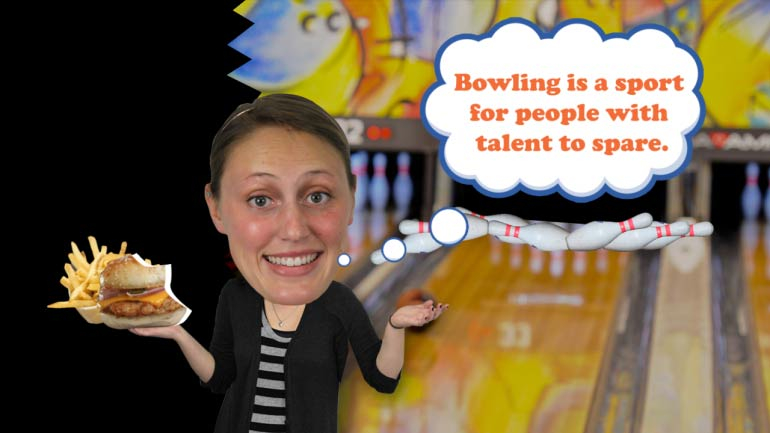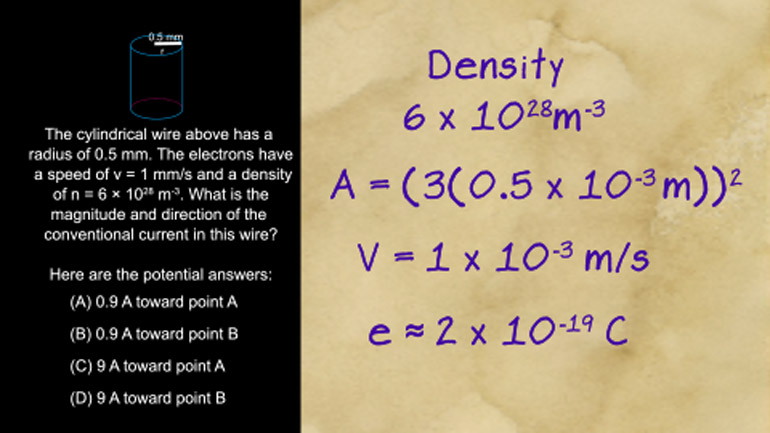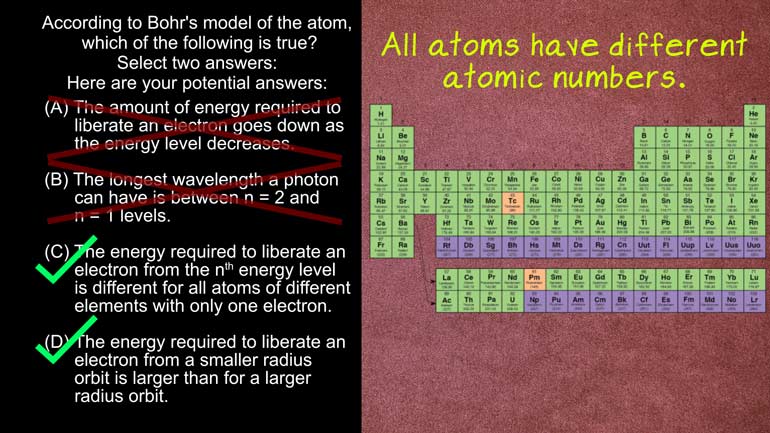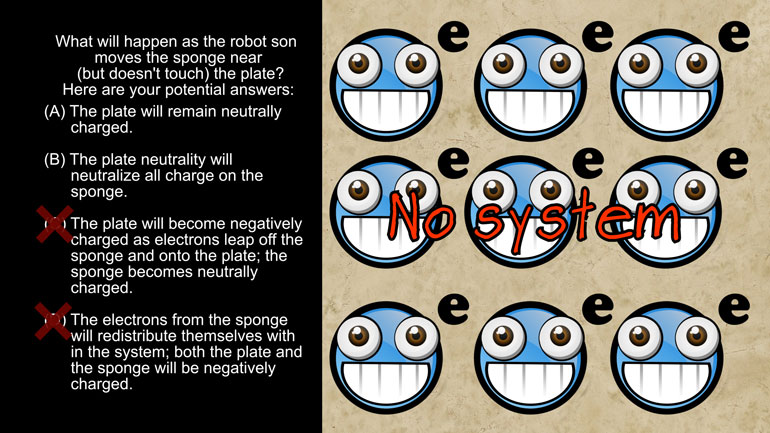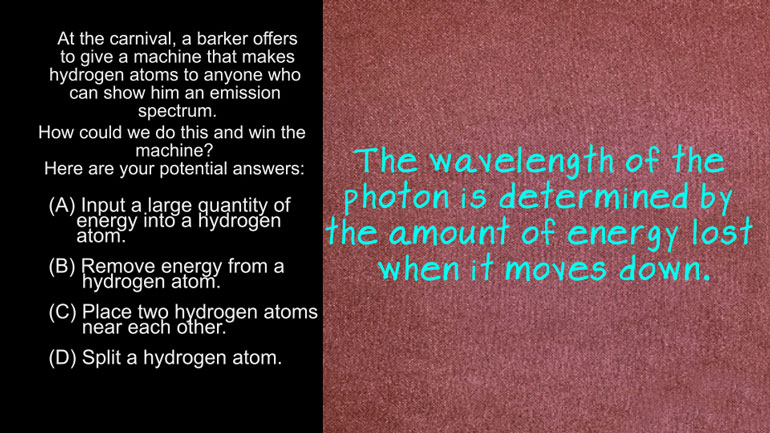ShmoopTube
Where Monty Python meets your 10th grade teacher.
Search Thousands of Shmoop Videos
AP Physics 2: 1.3 Fields in Space 167 Views
Share It!
Description:
AP Physics 2: 1.3 Fields in Space. How long will it take PANCAKE to reach the plate?
Transcript
- 00:00
Thank you We sneak and here's your shmoop dooz your
- 00:05
brought to you by pancakes for when you want deserve
- 00:08
for breakfast We've been there The planetary access non combustion
- 00:13
automatic kinetic explorer and cake has been sent to mars
- 00:18
to search for signs of primitive life Pancake is about
Full Transcript
- 00:24
to blast off back to earth when it realizes it's
- 00:26
booster rocket is broken A rescue satellite finally appears ten
- 00:31
kilometers above the surface The satellite has a charged plate
- 00:35
that creates a uniform electric field of magnitude tend of
- 00:38
the sixth newton cool ums pancake has a mass of
- 00:41
one hundred kilograms It charges itself with six hundred micro
- 00:46
coolant and stands directly under the plate Acceleration due to
- 00:50
gravity on mars is four meters per second squared Well
- 00:54
the figure displays the situation with pancake treated as a
- 00:57
point charge How long will it take pancake to reach
- 01:00
the plate And here the angel answers any second All
- 01:04
right we'd love to go to mars but let's talk
- 01:06
about failing rockets and lack of food and water really
- 01:09
doesn't make it sound all that much fun But if
- 01:11
we were to get stuck maybe a rescue satellite come
- 01:14
save us In this case the charge from the satellite
- 01:16
is pulling up on our little pancake and the martian
- 01:19
gravity is pulling it down Thie first thing we have
- 01:21
to do is figure out the forces being applied to
- 01:24
the martian explorer will the upward force Being applied by
- 01:27
the satellite equals the charge times The magnitude of the
- 01:29
electric field and the force of gravity pulling pancake down
- 01:33
equals mass times gravity Well the electric force is positive
- 01:37
and the gravitational force is negative Since they're acting in
- 01:40
opposite directions we'll figure out the net force We subtract
- 01:44
the gravitational force from the electric force But hold on
- 01:47
a second Just finding the force isn't going to tell
- 01:49
us how long this trip takes for that We need
- 01:52
to find pancakes Acceleration acceleration equals force divided by mass
- 01:57
so we can put our net force equation over master
- 02:00
to find the acceleration Now we can plug in the
- 02:03
numbers find the acceleration So here we go Six hundred
- 02:05
micro columns times ten to the sixth minus one hundred
- 02:08
kilograms times four meters per second Squared over one hundred
- 02:11
kilograms When we boil it all down gives us an
- 02:15
acceleration of two meters per second squared Alright we found
- 02:19
the acceleration We still have to figure out how long
- 02:21
it takes for pancake to reach the satellite and head
- 02:24
for home We know the acceleration is two meters per
- 02:27
second squared We know the distance of the satellite is
- 02:30
ten kilometers or ten thousand meters and we know that
- 02:33
we're dealing with kinnah matics at this point All right
- 02:36
we need an equation that involves time acceleration and distance
- 02:40
Well the one to go with is the distance or
- 02:43
displacement equation Distance equal starting velocity times time plus one
- 02:48
half acceleration times times square that'll do with rick The
- 02:54
starting velocity is zero so we can knock the first
- 02:56
part of the equation out Now We know that ten
- 02:59
thousand meters equals one half two meters per second squared
- 03:03
times times square well solving for time were able to
- 03:06
see that it takes pancake one hundred seconds to reach
- 03:09
the sweet embrace of the rescue satellite The right answer
- 03:12
is the houston pancake is headed home Goes down sticking
Up Next
Related Videos
AP Physics 2: 1.1 Properties of Objects and Systems. What is the magnitude and direction of the conventional current in this wire?
AP Physics 2: 1.5 Properties of Objects and Systems. According to the Bohr's model of the atom, which of the following are true?
AP Physics 2: 2.2 Properties of Objects and Systems. What will happen as the robot son moves the sponge near (but doesn't touch) the plate?
AP Physics 2: 2.4 Properties of Objects and Systems. How could you show the carnival barker an emission spectrum?
